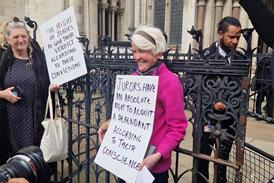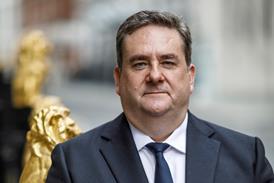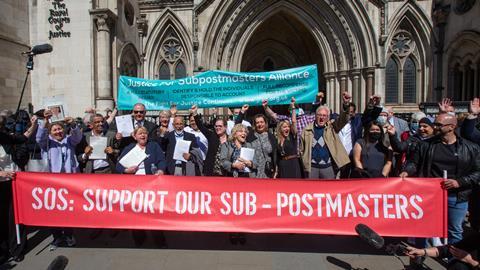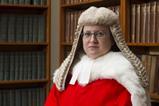The Post Office Horizon Inquiry has begun poring over one of the biggest miscarriages of justice in British history – and the role played by in-house and external lawyers is under intense scrutiny
Any lawyers hoping that the Post Office Horizon Inquiry would concentrate on IT and management failings rather than legal advice will have been disappointed by this month’s opening statements of core participants.
Alleged mistakes and cover-ups involving the disclosure of damaging evidence about the IT system will be key components of discussions as the inquiry pores over what has been described as the biggest miscarriage of justice in British history.
The role of Post Office’s in-house and external lawyers will come under the microscope, as will the advice of KCs and even the input of former Supreme Court president Lord Neuberger. He advised the Post Office that it had reasonable grounds to apply to recuse the judge, Mr Justice Fraser, who was overseeing the Bates v Post Office litigation. It was this litigation that revealed so much of what we now know went wrong. Sitting in the Court of Appeal, Lord Justice Coulson later described the application as ‘misconceived’, ‘fatally flawed’, ‘untenable’ and ‘absurd’.
In its opening submissions to the inquiry, Hudgells Solicitors, representing 64 of those convicted by the Post Office on the basis of Horizon evidence, said: ‘The reliance upon and the role played by professional reports, advice or reviews claimed to be expert or independent will be a repeated theme for consideration.
‘The CPs [core participants] we represent consider that there will be repeated questions for the inquiry to consider over the role of professional advisers and reviewers engaged by the Post Office (or others) to inform their position on Horizon.’
The inquiry has already heard submissions from Hodge Jones & Allen, on behalf of five postmasters, that alongside resisting applications for disclosure, Post Office lawyers and the expert witnesses they relied upon ‘were keeping secret evidence of a bug that could cause apparent shortfalls’.
The firm said the ‘intense discomfort’ of professionals having to give this advice could be sensed from the covering letter to Susan Crichton, general counsel at the Post Office, who was told: ‘I am sure you will appreciate that the advice is sent as part of our brief to advise on the impact of Horizon issues and to protect the reputation of POLtd [sic]. It is fully appreciated that you may wish to take a second opinion.’
Crichton, who left the Post Office within a few months of this exchange, replied: ‘I am therefore deeply concerned at the suggestion… that there may have been an attempt to destroy documentary material generated in connection with the Horizon Calls.’
'The reliance upon and the role played by professional reports, advice or reviews claimed to be expert or independent will be a repeated theme for consideration'
Hudgells Solicitors
The problem for the Post Office is that there was evidence as early as 2013 (with convictions still being pursued) that the system was flawed, in particular advice from one barrister that the expert used for such convictions was unreliable.
Hodge Jones & Allen said the legal response to facts spelt out at the time was ‘catastrophically inadequate’. The inquiry has heard that reviewing counsel had been told that some at Post Office did not wish to minute weekly conference calls with its lawyers during this time, and he made clear at the time that ignoring this duty to record material would amount to a breach of the law and serious breaches of the solicitors’ code of conduct – as well as potential criminal proceedings for attempting to pervert the course of justice.
Tensions continue to run high between the Post Office and its former postmasters – as reflected in a dispute about disclosure before the opening submissions.
Howe+Co, representing some 150 individuals, said the Post Office had not provided all the materials required. The irony of a row concerning Post Office disclosure cropping up in an inquiry looking at Post Office disclosure was raised more than once.
Herbert Smith Freehills, for the Post Office, pointed out that in many instances the material was over 20 years old. It had already produced 95,000 documents from a review of some 50 million.
Lawyers for the postmasters likened the Post Office to a ‘malevolent animal’, adding that ‘you have to train an unruly participant and the only way you can train it is by actually not acceding to its continuing contempt for the process’. Inquiry chair Sir Wyn Williams rejected calls from the postmasters for an adjournment.
Criticism of lawyers could prick the ears of the Solicitors Regulation Authority, a core participant in the inquiry. In an update last week, the SRA said it would wait until the end of the inquiry process to take any formal steps. But the fallout from this most egregious of miscarriages could be long and wide-ranging.
Pictured above: Former sub-postmasters celebrate outside the Court of Appeal last year after their convictions were overturned
This article is now closed for comment.


















![David Lester (senior partner at Blythe Liggins), Darryl Barnes, Jagdeep Sandher (head of dispute resolution at Blythe Liggins)[4]](https://d1d8vslyhr7rdg.cloudfront.net/Pictures/274x183/4/2/8/116428_davidlesterseniorpartneratblytheligginsdarrylbarnesjagdeepsandherheadofdisputeresolutionatblytheliggins4_981603_crop.jpg)














13 Readers' comments